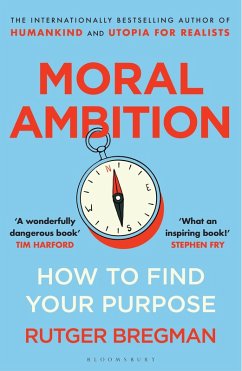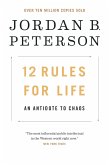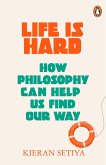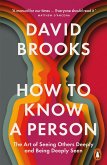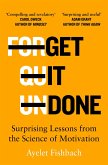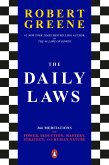Pre-order the international bestselling antidote to apathy, and discover how you can truly make a difference in the world - coming in paperback THE SUNDAY TIMES BESTSELLER A GUARDIAN BOOK OF THE SUMMER 2025 __________ 'A fierce and brilliant call to arms for anyone who has been wondering whether there's more to life. (There is.) Bregman wants to change you, and he just might succeed. This is a wonderfully dangerous book' TIM HARFORD 'The rare read that might actually help you become a better person' ADAM GRANT __________ THE ANTIDOTE TO APATHY FROM THE INTERNATIONALLY BESTSELLING AUTHOR AND 2025 BBC REITH LECTURER RUTGER BREGMAN Every day we're bombarded with methods, mantras and life hacks that promise us wellness and prosperity - while time and talent remain some of our most squandered resources. The average full-time worker will spend 80,000 hours at their job: are you making the most of them? Do you truly believe in what you do, day in, day out? What if you want to do something more with your limited time on the planet? Internationally bestselling author Rutger Bregman shows us that with moral ambition - the will to make the world a wildly better place - we can be both idealistic and successful, and change the world along the way. Uncovering the qualities that made the great change-makers of history so effective, he shows how we too can lend our talents to the biggest challenges of our time, from climate change to inequality to the next pandemic. With moral ambition, we can do more than be on the right side of history: we can make history itself. This book won't make your life easier, but it should make it more meaningful. The question is: what will you do with it? As the 2025 BBC Reith Lecturer, Rutger Bregman will present 'Moral Revolution', a four part series: -A Time of Monsters -How To Start a Moral Revolution -A Realist's Utopia -Zoom Out Available to listen on BBC Four.
His appeal is very much to the high-flyer, looking for a cause that will give the fullest moral satisfaction ... Yet he is also admirably realistic about the need to park one's own desire for a certain kind of sainthood, to accept the need for ordinary self-care so as to avoid falling victim either to burnout or - worse - to one's own mythology, and to remain clear about what measurable differences might look like ... Offers a bracingly hopeful perspective, insisting on the necessity of doing all you can to allow yourself to be sensitised and resensitised to that which eats away at the dignity not only of humanity but (an important element in Bregman's argument) of the entire living environment Guardian
A rallying cry ... His appeal is very much to the high-flyer, looking for a cause that will give the fullest moral satisfaction ... Yet he is also admirably realistic about the need to park one's own desire for a certain kind of sainthood, to accept the need for ordinary self-care so as to avoid falling victim either to burnout or – worse – to one's own mythology, and to remain clear about what measurable differences might look like ... Offers a bracingly hopeful perspective, insisting on the necessity of doing all you can to allow yourself to be sensitised and resensitised to that which eats away at the dignity not only of humanity but (an important element in Bregman's argument) of the entire living environment

